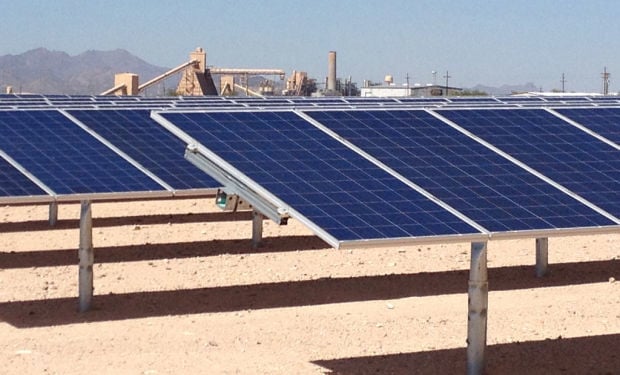The first was discussed in our previous blog on solar access rights.
Arizona solar panel laws.
Srp tep and all the rural co ops in arizona have different rates.
Some of the common restrictions that hoas and historic districts put on solar installations include requiring flush mounted panels prohibiting ground mounted solar panels requiring that rooftop installations aren t visible from the public right of way and using equipment that matches the color of the roof.
Considering that solar panels can add 20 000 or more in value to your home this exemption is definitely worth the time and effort to apply.
Arizona law protects individual homeowners private property rights to solar access by dissolving any local covenant restriction or condition attached to a property deed that restricts the use of solar energy.
If they don t do this they will receive large fines.
That is a significant amount of savings on your income taxes.
Examples of states that have enacted solar access rights laws including california utah texas arizona and florida.
This law sustained a legal challenge in 2000.
The purpose of these laws is to prevent homeowner s associations from banning solar panels and often also prevents them from having contracts that restrict homeowners from installing solar panels on their homes.
Arizona doesn t have standard net metering rules so aps pays a different amount for the excess electricity produced by solar panels than the state s other electric utilities do.
Numbers for usage and electricity prices come from the u s.
The state has over 20 000 residences with solar power and more individuals are expected to go off the grid.
A significant reason for the growth of solar power in recent years is arizona s rps law.
Arizona solar energy tax credit not only do arizona residents get to take advantage of the federal tax credit but they can also receive the state s solar energy credit.
Know arizona laws on solar there are two key legislation that can help you as a solar energy owner.
Arizona s solar energy credit is equal to 25 of the costs of a solar system up to 1 000.
While homeowner associations cannot prevent you from installing solar panels they can set reasonable rules you should follow during installation.
The december hearing sought to address that reviewing an october recommended order by an administrative law judge alj on proposals made during the acc s year long value of solar vos proceeding.
These sorts of restrictions can make it difficult or costly for a homeowner to go solar.

